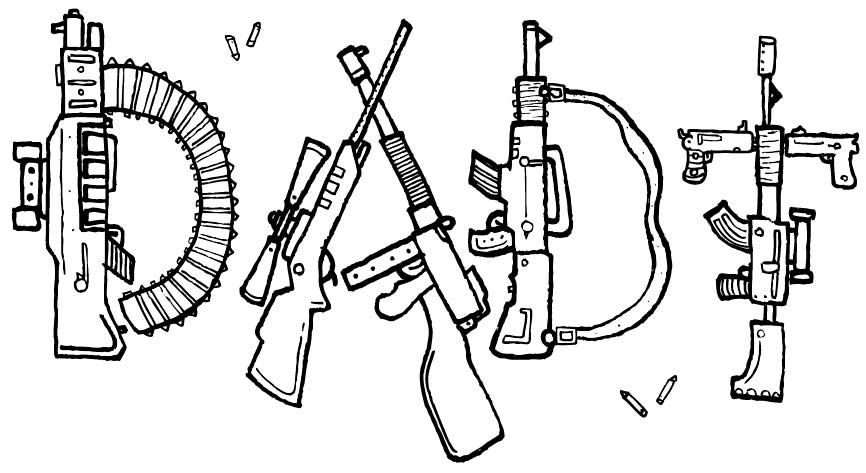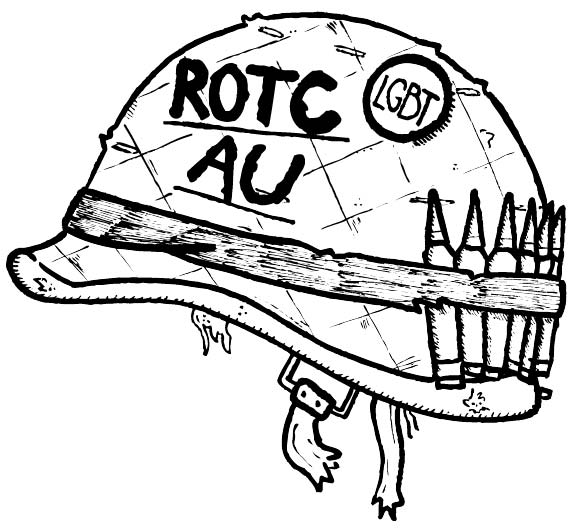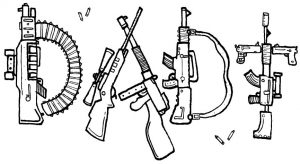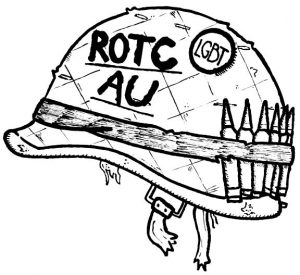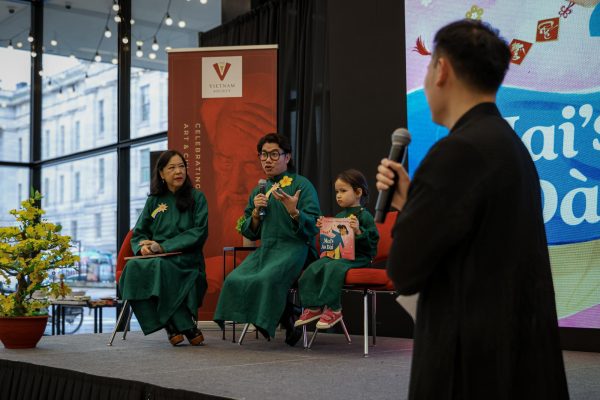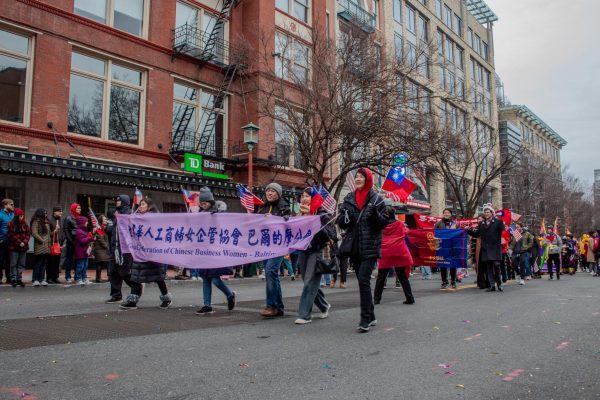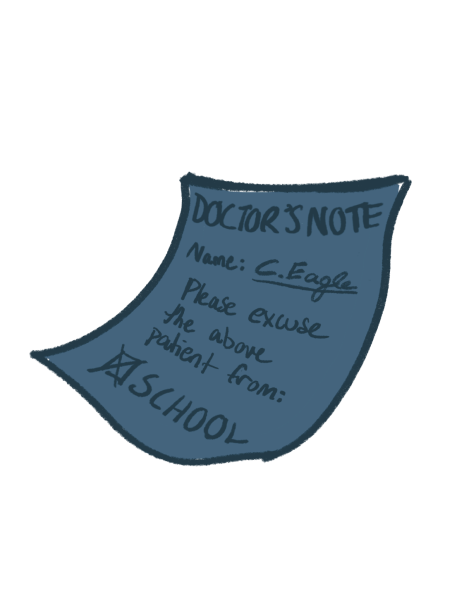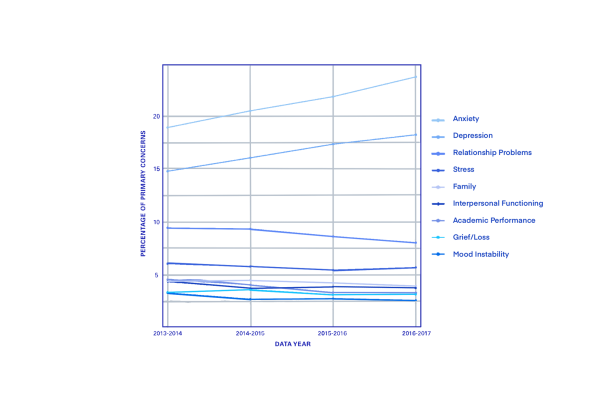Peace and Gay Rights Activism After “Don’t Ask, Don’t Tell”
But for years, resistance to the military on college campuses has coalesced around one flagrant issue: the military’s Don’t Ask, Don’t Tell (DADT) policy, which blatantly violated most university anti-discrimination rules. The military’s discriminatory policy towards homosexuals was thus reason to severely restrict or even ban the military from college campuses.
The repeal of DADT may represent a major and hard won achievement for the gay rights movement, but it may also be something of a death knell for the counter-recruitment movement on college campuses. During his 2011 State of the Union address, President Barack Obama even called on colleges to “open their doors to our military recruiters and the ROTC” in light of the repeal, calling it “time to leave behind the divisive battles of the past.”
In a post-DADT world, the military might finally take root at AU. What does that mean for anti-war activism on campus?
AU students have been protesting military discrimination for decades. Starting in the early 1990s, students rallied on campus against the Reserve Officers Training Corps and military recruitment, with discrimination as their primary argument against having recruiters on campus. (A cringe-worthy headline from The Eagle in 1991 covering these events read simply “Homosexuals protest ROTC presence,” ignoring that most of the protesters were not homosexual and that they were not just protesting the ROTC presence.)
These efforts actually succeeded, with both AU and the Washington College of Law instituting various bans on military recruitment and ROTC programs.
But this principled stand was short-lived. Restrictions on the military began to crumble with the passage of the Solomon Amendment in 1996, which allowed the federal government to pull federal funding and grants to any organization refusing access to military recruiters or the ROTC.
Even before the passage of the Don’t Ask, Don’t Tell Repeal Act last December, the campus was beginning to give way to expanding military presence. The AU administration had — as early as November — signaled its willingness to allow for military science classes to be taught and to allow the ROTC program to use athletic facilities. The changes by the administration came in tandem with the recommendation made by the Student Government Ad-Hoc Committee for the Review of University Military Policy. Led by its Chairman Brett Atanasio, the committee advocated expanding and improving access for the ROTC program.
Some 20 years after students began protesting against discrimination and over 17 years since DADT’s original enactment, a recent headline in The Eagle proclaimed: “After ‘don’t ask, don’t tell’ repeal, opposition to SG ROTC bill erodes,” noting that with the repeal of DADT, the opposition based on discrimination had evaporated.
“With the repeal of DADT I think you will see AU develop a much warmer and closer relationship to the military over the next few years,” Atanasio said. “I think you’ll see much less resistance from students who were concerned about discrimination.”
DADT’s departure is undoubtedly a milestone. “It is a major step forward in the fight for full civil equality for LGBT people,” said Tonei Glavinic, executive director of AU’s Queers and Allies. There are some remaining hurdles, though. “Military culture is pretty homophobic and that isn’t going to change overnight,” Glavinic said. Transgender people are also still prohibited from serving and the military doesn’t recognize all the rights of married same-sex couples.
The AU military community also seems to welcome the repeal. “Considering DADT in light of my military career I think it is a smart policy change,” said Matthew Halbe, president of Veterans of American University. He believes the bill “will protect openly gay soldiers from personal vendettas of their commanders.”
Although the resistance from LGBT rights advocates may no longer be central, for many AU activists, discrimination was beside the point.
“The military is an extremely immoral institution; DADT was just a drop in the bucket,” said Michael Dranove, a member of the AU Community Action and Social Justice Collective. “We all know that the real crimes that the US military commits are done in foreign countries.” Dranove says that if international law were properly enforced, many US leaders over the past 50 years would have faced war crimes charges.
In response to an e-mail query, foundational anti-war advocate Noam Chomsky echoed Dranove’s opposition. He called the focus on DADT an “evasion” of the real issue, which is ensuring that universities are “free and independent” and not “subservient to state or private power.”
Atanasio, on the other hand, objects to those who criticize the military. “The call to service is a defining characteristic of the AU identity,” he claimed. “Few can compare to the dedication and the sacrifice of those who chose to fulfill this ideal by joining the armed forces.”
One AU alum currently serving in the military considers the efforts of anti-war activists misdirected. “Many, if not all of those politicians were helped into office by those very AU students who vilify the military,” he said. “If AU students really cared about the wars we were fighting, then how about working to get someone elected who will send the troops home?”
Regardless of how students feel, the military’s access to AU and its presence on campus are likely to expand with the repeal of DADT. But that doesn’t necessarily have to deter peace activists.
“Just because DADT has been repealed doesn’t mean that we can’t resist an increased military presence,” said Caitlin Rosser, co-director of the Student Peace Alliance. “It just means we must change our dialogue and our tactics.”
Any discussion of the US military is likely to be thorny. But if ROTC comes to campus, Rosser hopes it will engender “desperately needed dialogue” over the role of the US military in American culture.
Halbe agrees. “We project an image of a non-militarized society, when actually we are armed to the teeth,” he said. “If we push ROTC off campus, we are putting up blinders.”
Illustration by Max Gibbons


